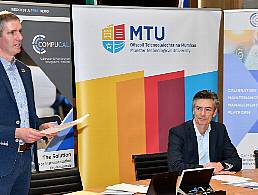PISA, the OECD group responsible for measuring maths and literacy performance by students worldwide, has found Ireland significantly below the OECD average for maths, causing alarm among industry groups.
Comparing countries’ and economies’ performances, Ireland achieved a PISA (Programme for International Student Assessment) score of 487, below the OECD average of 496 and comparing poorly with economies like China-Shanghai (600), Korea (546) and Finland (541).
For science, Ireland was actually marginally above the OECD average of 501 with 508 points, but behind countries like Singapore (549), Canada (542) and Switzerland (517), but fared better than the US (502), Israel (455) and France (498).
On the overall reading scale, Ireland was just above the OECD average of 493 with a score of 496 points. Top of the scale was Shanghai-China (556), Korea (539) and Finland (536).
Industry reaction
ICT Ireland, which represents the high-tech sector, has expressed serious concern at the poor results in maths literacy levels highlighted by the latest OECD PISA figures released today.
ICT Ireland director Paul Sweetman said: “Today’s OECD results are very discouraging. In 2007, Ireland was ranked 17th in the OECD with regard to maths literacy; we have now fallen to 26th, well below the OECD average. Ireland’s high-tech industries require students with the highest levels of maths literacy. This downward trend must be reversed immediately.
“Today’s report also notes that students in Ireland have significantly lower levels of use of ICT resources in school. To address this gap, it is crucial that support for the ICT in the classroom initiative Smart Schools = Smart Economy (is there),” Sweetman added.
Business group IBEC expressed serious concern at the figures released by the OECD in its PISA report, which found that the performance of Irish 15-year-olds in mathematics and reading has shown a significant deterioration since the last survey in 2006. Ireland ranked 26th in mathematics and 17th in reading literacy, out of a survey of 34 OECD countries in 2009. This compares with a ranking of 16th in mathematics and fifth in reading literacy in 2006.
Tony Donohoe, IBEC head of education policy, said: “These findings would suggest that, unless urgent remedial action is taken, we will have significant problems with the attainment of young people going into the third-level system. Employers have raised concerns about literacy. However, the fall in Ireland’s ranking in this survey is particularly dramatic and is a wake-up call in an area in which Ireland had performed reasonably well.
Call for curricular reform
“The mathematics results are particularly disappointing because Ireland’s aspiration to be a knowledge economy depends on a strong supply of engineers and technologists. Therefore, the marked decline in the number of high-achieving mathematics students is of particular concern to business,” Donohoe continued.
“Export-led high technology companies are performing remarkably well, despite the recession. However, their future in Ireland will depend on sufficient numbers of suitably qualified graduates. For students to pursue these disciplines, they must have a strong foundation in mathematics at secondary school.
“The significant reform of the second-level mathematics curriculum through the Project Maths programme should help to improve standards at second level. However, international research confirms that the quality of teachers is the single most important element in improving students’ performance.
“A professional development framework for secondary teachers, adapting good practice from business and the best performing education systems, should be developed and implemented by the Teaching Council and the Department of Education and Skills,” Donohoe said.




